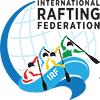IRF Position on Doping in Sport
The IRF is unequivocally opposed, on ethical and medical grounds, to the practice of doping in sport and fully supports the position of the International Olympic Committee (IOC) and World Anti-Doping Agency (WADA) against the use of banned substances and methods.
The use, possession and/or trafficking of banned substances, methods, or the encouragement or counseling to use banned substances, or methods, and/or taking measures to mask the use of banned substances, or methods by any participant in competitions over which the IRF has jurisdiction is unacceptable and will not be tolerated.
IRF Anti Doping History
in 2009, in support of the IRF Position on Doping in Sport, the IRF Anti Doping programme was initiated by the IRF Sport and Competition Committee. Doping tests were proposed for major international rafting competition events.
From 2011 forward, and in 2014, the IRF Board of Directors approved race rules which required World Anti Doping Agency (WADA) Code compliant doping tests mandatory for all Category A (World Championship) level events. The first Code compliant tests were conducted in 2014 at the IRF European Rafting Championship in Slovakia and again later that year at the World Rafting Championship in Brazil.
In October 2019, after attaining Observer Status with the Global Association of International Sports Federations (GAISF) the IRF became eligible to apply for WADA Code signature status, further solidifying the IRF commitment to the anti-doping and clean sports movement.
In October 2021, after satisfying all of the WADA signature requirements, the World Anti-Doping Agency (WADA) officially accepted the IRF as a signatory of the WADA Code. The IRF implements a strict adherence to the Code as a way to ensure a clean, healthy and fair sporting atmosphere for all athletes.
What is Doping?
Doping is not just a positive test showing the presence of a prohibited substance in an athlete’s urine sample. Doping is defined as the occurrence of one or more of the 11 Anti-Doping Rule Violations (ADRVs) outlined in the World Anti-Doping Code and Anti-Doping Rules. These are:
- Presence of a prohibited substance, its metabolites or markers in an athlete’s sample
- Use or attempted use of a prohibited substance or method by an athlete
- Refusing, evading or failing to submit to sample collection by an athlete
- Failure to file whereabouts information and/or missed tests by an athlete
- Tampering or attempted tampering with the doping control process by an athlete or other person
- Possession of a prohibited substance or method by an athlete or athlete support personnel
- Trafficking or attempted trafficking of a prohibited substance or method by an athlete or other person
- Administering or attempting to administer a prohibited substance or method to an athlete
- Complicity or attempted complicity in an ADRV by an athlete or other person
- Prohibited Association by an athlete or other person with a sanctioned athlete support personnel
- Acts to discourage or retaliate against reporting to authorities
The WADA Code
The WADA Code is the core document that harmonises anti-doping policies, rules and regulations within sport organisations and among public authorities around the world.
It works in conjunction with six international standards which describe how the various technical aspects of anti-doping work have to be performed.
Below links are to the updated WADA Code and Standards that are in effect in 2024:
- WADA Code
- WADA Prohibited List
- International Standard for Code Compliance by Signatories
- International Standard for Education
- International Standard for the Protection of Privacy and Personal Information
- International Standard for Results Management
- International Standard for Therapeutic Use Exemptions (TUEs)
- International Standard for Testing & Investigations
As an athlete, it is YOUR responsibility to ensure that any medication you take or use is not on the prohibited list of substances
If you take any kind of medication, you will need to check the list of substances within the medication to see if any substance is on the prohibited list. Your doctor may be able to help you if they have prescribed the drug for you.
If you have any medication that is on the prohibited list you must have a Therapeutic Use Exemption (TUE) prior to any doping control. If you can not show the doping control officer a TUE during the doping control you might receive a positive doping test.
The Prohibited List of Substances and Methods
The IRF will always adhere to the prohibited list published by WADA. The list of prohibited substances and methods is revised once a year. Updates are published each January.
Official Prohibited List can be accessed in PDF version here.
Digital Prohibited List (easy search) can be accessed here. If there is any discrepancy, the PDF version is noted as the official version.
The Prohibited List of Substances and Methods is divided into three categories:
- Substances and methods prohibited at all times (in-and out of competition)
- Substances and methods prohibited in competition
- Substances prohibited in certain sports
Substances and methods prohibited at all times (in-and out of competition)
Prohibited Substances
S0 – Non approved substances
S1 – Anabolic agents
S2 – Peptide hormones, growth factors, related substances and mimetics
S3 – Beta-2 agonists
S4 – Hormone and metabolic modulators
S5 – Diuretics and masking agents
Prohibited Methods
M1 – Manipulation of blood and blood components
M2 – Chemical and physical manipulation
M3 – Gene and cell doping
Substances and methods prohibited in competition
In addition to the categories S0 to S5 and M1 to M3 defined above, the following categories are prohibited in competition:
S6 – Stimulants
S7 – Narcotics
S8 – Cannabinoids
S9 – Glucocorticoids
Substances prohibited in certain sports
P1 – Beta-blockers
 The Global DRO website provides a simple and free to use checking service for medicines purchased in Australia, Canada, Japan, New Zealand, Switzerland, the United Kingdom, and the United States.
The Global DRO website provides a simple and free to use checking service for medicines purchased in Australia, Canada, Japan, New Zealand, Switzerland, the United Kingdom, and the United States.
Simply select the country of purchase, enter basic details of the medication and the search will provide details of whether the medication is banned or not. Each search is logged individually and you can take the reference number as evidence of the search for assistance should a false positive result be found.
The site is updated regularly following updates to the published prohibited items list.
Taking supplements is at each athlete’s own risk. This is especially true if it results in any positive doping test(s). Some dietary supplements and natural products can contain substances that are on the prohibited list.
Athletes are always personally responsible for any prohibited substances taken through dietary supplements and will be held responsible for a positive doping test. Even if this was never intended as deliberate doping, but as a result of contaminated supplements.
Some elite athletes may have a need for a supplement in relation to their diet. The reasons may be disease, physiological defects or extreme training volumes. We recommend you consult a dietician for good advice in relation to diet, and have your needs for supplements assessed.
There are numerous examples of dietary supplements purchased in countries all over the world that have been contaminated with prohibited substances. This includes substances that have not been included in the list of ingredients.
Additionally, supplements can be added to medicines in such large doses that they pose an actual health risk. Examples are:
- stimulants with narcotic and addictive effects,
- combinations of different stimulants that are dangerous to the heart,
- sedatives which are not advisable in combination with driving, and
- anabolic androgenic steroids, often in the form of prohormones.
Supplements may also be the entrance to the use of anabolic steroids. A study by Dodge and Jaccard (2006) has shown that the probability of using steroids is 26 times greater if you use supplements than if you train without supplements. Additionally, supplements often prove to be ineffective – especially if they are not used carefully.
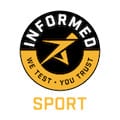 The Informed Sport website provides a simple and free to use checking service for supplements and vitamins.
The Informed Sport website provides a simple and free to use checking service for supplements and vitamins.
Simply enter the brand or bar code in the site search to confirm whether or not it contains any prohibited items.
The site is updated regularly following updates to the published prohibited items list.
The IRF follows the WADA rules exemption for therapeutic use of a drug in accordance with the International Standard for TUE.
What is a TUE?
Athletes may have illnesses or conditions that require them to take medications or undergo procedures. If the medication or method an athlete is required to use to treat an illness or condition is prohibited as per the World Anti-Doping Agency’s (WADA) Prohibited List. TUE may give that athlete the authorization to use that substance or method while competing without invoking an anti-doping rule violation (ADRV) and applicable sanction. Applications for TUEs are evaluated by a panel of physicians, the TUE Committee (TUEC).
Athletes who have been diagnosed and prescribed treatment with medication that contains substances on the Prohibited List must apply for a TUE before doping control.
What are the criteria for granting a TUE?
All of the four following criteria must be met (for more details, please refer to the WADA International Standard for Therapeutic Use Exemptions (ISTUE) Article 4.2):
- The athlete has a clear diagnosed medical condition which requires treatment using a prohibited substance or method;
- The therapeutic use of the substance will not, on the balance of probabilities produce significant enhancement of performance beyond the athlete’s normal state of health;
- The prohibited substance or method is an indicated treatment for the medical condition, and there is no reasonable permitted therapeutic alternative;
- The necessity to use that substance or method is not a consequence of the prior use (without a TUE), of a substance or methodwhich was prohibited at the time of use.
Who should Apply for a TUE? When and Where to Apply?
Athletes who are subject to anti-doping rules would need a TUE to take a prohibited substance or use a prohibited method.
Athletes may download an IRF TUE Application Form or contact the National Anti Doping Organisation (NADO) within their own country to obtain the correct TUE form.
Athletes need to apply for TUE before competing.
If you do not have a TUE for a substance that is listed on the prohibited substance list prior to testing, you will NOT be able to claim that you are permitted to take the specific drug. This will likely result in a positive doping test. It is not possible to get a TUE retrospectively. Therefore, you need a TUE before a potential doping control.
First, check if the required medication or method you intend to take, or use is prohibited as per the WADA Prohibited List.
You have a responsibility to inform your physician(s) that you are an Athlete bound to anti-doping rules. You and your physician(s) should check the Prohibited List for the substance/method you are prescribed. If the substance/method is prohibited, discuss non-prohibited alternatives, if there are none, apply for a TUE. Remember Athletes have the ultimate responsibility. Contact your NADO or your National Rafting Federation if you are having difficulties.
If you are an IRF International-Level Athlete (you compete in IRF International rafting events) you must apply to the IRF in advance, as soon as the need arises, unless there are emergency or exceptional circumstances.
For substances prohibited in-competition only, you should apply for a TUE at least 30 days before your next competition, unless one of the exceptions on retroactive TUEs (see below) apply.
Please refer to the section “How to Apply to the IRF for a TUE?” below.
If you already have a TUE granted by your National Anti-Doping Organization (NADO) please notify the IRF that you have a TUE granted by your NADO.
NOTE: the process handling time for a TUE can be up to 30 days.
Can You Get a Retroactive TUE?
You may only apply retroactively for a TUE to the IRF if:
- You required emergency or urgent treatment of a medical condition.
- There was insufficient time, opportunity or other exceptional circumstances that prevented you from submitting the TUE application, or having it evaluated, before getting tested.
- You are a lower level athlete who is not under the jurisdiction of the IRF or NADO and were tested.
- You tested positive after using a substance Out-of-Competition that is only prohibited In-Competition (for example glucocorticoids).
In rare and exceptional circumstances you may apply for and be granted retroactive approval for a therapeutic use of a prohibited substance or method, if considering the purpose of the Code, it would be manifestly unfair not to grant a retroactive TUE.
This unique retroactive TUE will only be granted with the prior approval of WADA (and WADA may in its absolute discretion agree with or reject the IRF’s decision).
Important note: Using a prohibited substance or method without a TUE could result in an Anti-Doping Rule Violation.
In case an application for a retroactive TUE is necessary following sample collection, you are strongly advised to have a medical file prepared and ready to submit for evaluation.
How to Apply to the IRF for a TUE
You must exclusively submit your TUE application, including the required medical file, via the WADA Anti-Doping Administration and Management System (ADAMS). If you do not have an ADAMS account yet, please contact the IRF Administration at doping@internationalrafting.com to have your account set up.
TUE Checklists
TUE Checklists can be obtained on the WADA website. The checklists are used to guide the athlete and their physician on the overall requirements for a TUE application. Checklists must be accompanied by evidence that will allow the TUE application to be assessed whether the relevant International Standard for TUE Criteria are met.
The completed TUE checklist form alone is not sufficient; supporting documents MUST be provided. A completed application DOES NOT guarantee the granting of a TUE. Conversely, in some situations a legitimate application may not include every element on the checklist.
A doping control process is the same for all athletes regardless of the sport. If you are requested to take a doping control test, you have to follow the guidelines set out by WADA and the National Anti Doping Organisation who are administering the test(s).
The video below is the official WADA Doping Control Process for Athletes video:
The video is available on the WADA Website in other languages including Français, العربية, Hrvatski, Deutsch, Portuguese, Русский, Español.
- When do I need to complete a TUE application form?
You need to get a TUE if you take or use any medications that are listed on the prohibited list of substances and methods. You must do this before competition starts. Allow up to 30 days for processing of the application. - How will I know if my medication suddenly gets banned?
As an athlete it is your own responsibility to be updated in the type of medication you are taking - Do I need to fill out Whereabouts?
Presently IRF Athletes do not need to fill out Whereabouts. If/when this is a requirement, all athletes will be informed with at least four weeks notice - Is cannabis a banned substance?
Yes. Cannabis is a banned substance during competition - Can I drink coffee during a competition?
Yes. Caffeine was a banned substance between 1984-2004 but is now not included on the list
Recent Anti Doping news
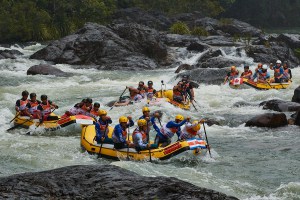
No adverse anti doping results WRC 2019
The tests, done at the end of the Downriver by the Australian Anti-doping Agency, all went smoothly and quickly. The results have come in and no adverse findings were made! Thanks to all the athletes keeping our sport clean.
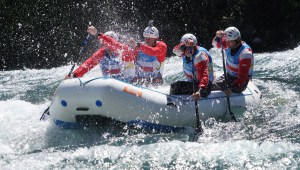
No adverse anti doping results at WRC 2018
The IRF is pleased to announce that the results from the anti-doping tests done at the IRF’s 2018 World Rafting Champs in Argentina showed no adverse results. Thanks go to all the athlete’s for keeping our sport clean of doping.
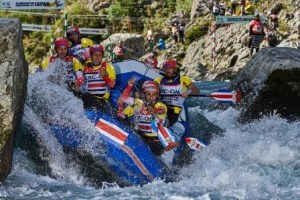
No adverse anti doping results at WRC2017
The results from the anti-doping tests done at the IRF’s 2017 World Rafting Champs in Japan showed no adverse results. The IRF is pleased to see that their athlete’s are taking to heart the aim of keeping their sport clean of doping.
External links are provided as a convenience and for informational purposes only; they do not constitute an endorsement or an approval by the International Rafting Federation of any of the products, services or opinions of the corporation, organisation or individual. The International Rafting Federation bears no responsibility for the accuracy, legality or content of the external site or for that of subsequent links. Contact the external site for answers to questions regarding its content.
Please let us know about existing external links that you believe are inappropriate.
